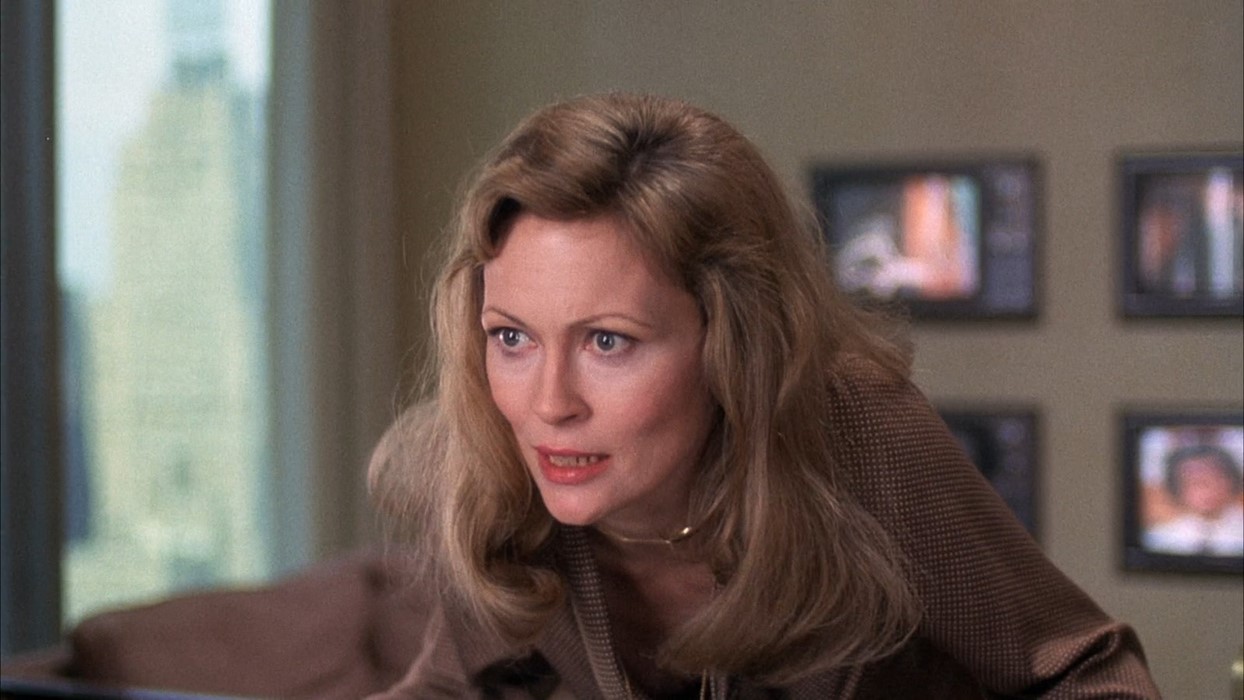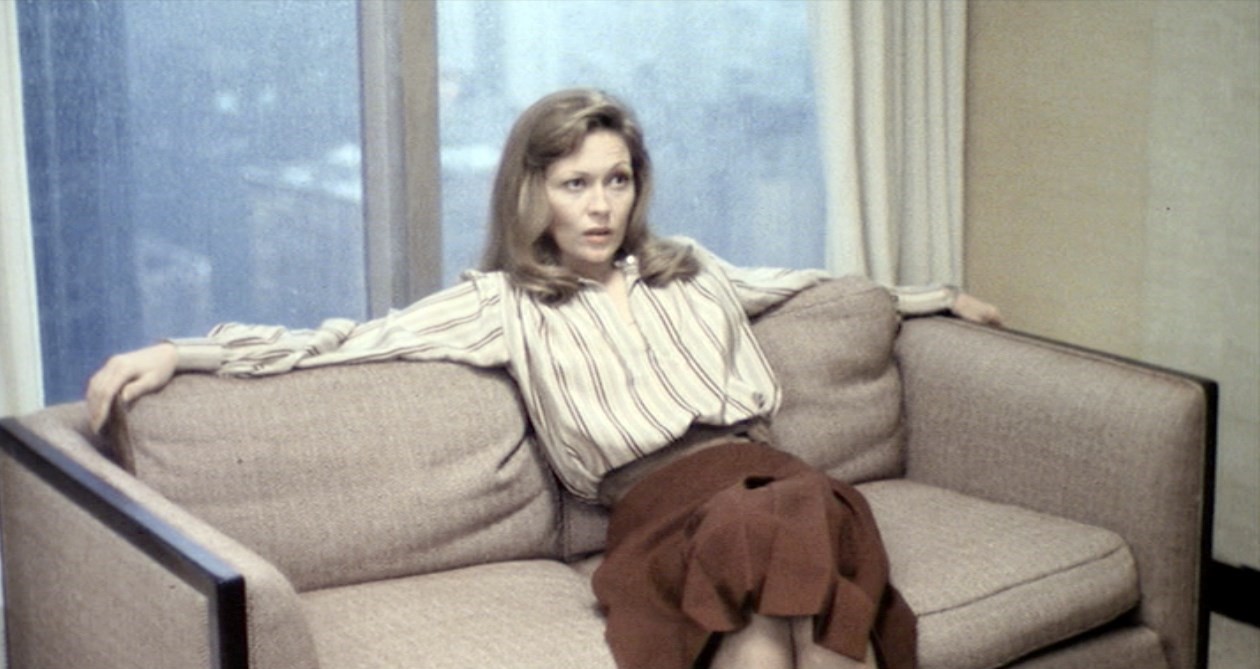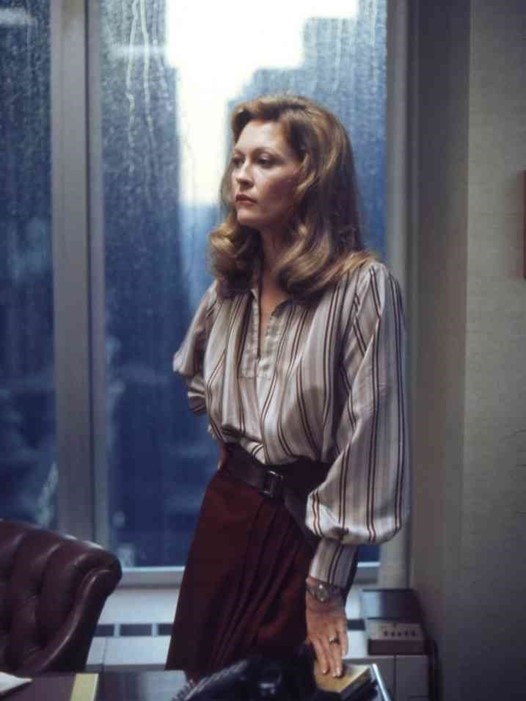We recall the actress (and Gucci muse) as most inspiring character to date: Diana Christensen, in the 1976 film Network
“I don’t need you!” bellows Faye Dunaway as Diana Christensen in the 1976 film Network, during the penultimate scene, which sees her lover Max Schumacher (played by William Holden) leaving her. “I don’t want your pain, I don’t want your menopausal decay and death! I don’t need you Max get out of here right now!” Max, who has had quite enough of Diana’s cutthroat attitude, is running back to his long-suffering wife after embarking on the turbulent affair with his younger work colleague. Ms Christensen represents the antithesis of 20th-century marital stability; a calculated, powerful and career-driven television network executive who will stop at nothing to get what she wants. But clearly, this proves too much for the middle-aged Schumacher to handle – how typical.

Network, directed by Sidney Lumet, satirises the pitfalls of a struggling television channel named UBS Evening News, and its quest for ratings. Its employees are willing to do almost anything to engage their viewers, with Diana Christensen taking the whole biscuit tin for dreaming up left-field ideas that would send OFCOM into total apoplectic shock. One such example includes the appropriation of films made by the radical political group the Ecumenical Liberation Army – including footage of its members robbing banks at gunpoint – and turning them into a TV series. “Maybe they’ll take movies of them kidnapping heiresses, hijacking 747s, bombing bridges, assassinating ambassadors!” she exclaims to her team members with maniacal glee. Diana might have been essentially inventing reality television here, but this was certainly a format best left as faint pencil scribbles on a boardroom notepad.
Regardless of her questionable ethics, the role of Diana Christensen – the villain everybody loved to hate – won Faye Dunaway her first and only Academy Award. As the iconic American actress starred in a recent Gucci campaign, putting her back in the spotlight once more, we thought it fitting to examine Christensen’s character; for with mantras such as “If you’re going to hustle, at least do it right,” and an impeccable wardrobe to match her impenetrable heart, we can't help but admire her.

The Signature Style
The costumes in Network were designed by Theoni V. Aldredge, who naturally looked to the likes of Yves Saint Laurent, Diane von Furstenberg and Halston for Christensen’s 1970s work wardrobe. Her favoured neutral colour palette is reflective of her stoic exterior; any warmth she might possess is dulled by the taupes and creams that she wears from head-to-toe. When we first meet Diana, she’s dressed in a wool camel two-piece, a merino crew neck jumper and wool pencil skirt offset by nude tights and T-bar shoes. Even her honey blonde hair matches her clothing, tumbling around her shoulders as she determinedly strides around the network’s offices. Her brows – plucked within an inch of their life – animate her face as it pitches to her team; her mouth (painted a coral-red, the brand of lipstick most likely Dior) speaking quickly and confidently of things that are better left unsaid. Later, she is clad in a brown polka-dot silk pussy-bow blouse and a chestnut pleated wool skirt, followed by a magnolia shirt with stripes and covered buttons tucked into high-waisted trousers. Surely, if Diana were to have a nickname at UBS Evening News it should have been ‘The Bitch in Beige’, which really has quite a ring to it.
The Modern Manifestation
Diana Christensen is emblematic of a time when women were vilified for showing an ounce of autonomy in the workplace, fuelling the burgeoning women’s rights movement. Dunaway almost turned down the role at the advice of her friends, who warned her that playing a female with such callous attitudes towards life and business would sully her career and personal life. Fortunately, it had the opposite effect, propelling her to the status of an American icon. Alessandro Michele recognises this in Gucci’s latest campaign for the Sylvie bag, in which Dunaway appears as a “busy, successful Hollywood mother”, perhaps demonstrating that the character she plays for the house has a little of Diana in it after all.
